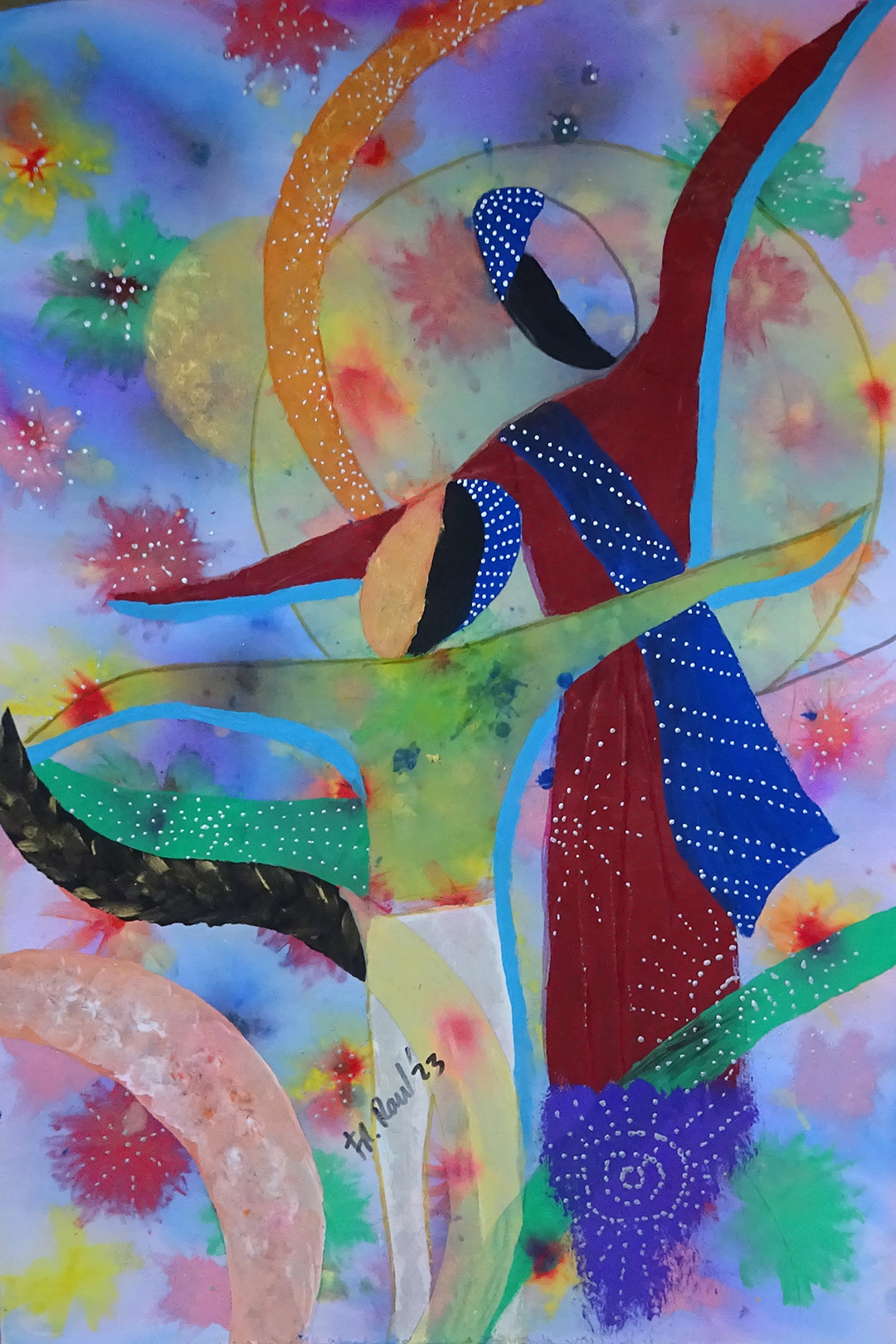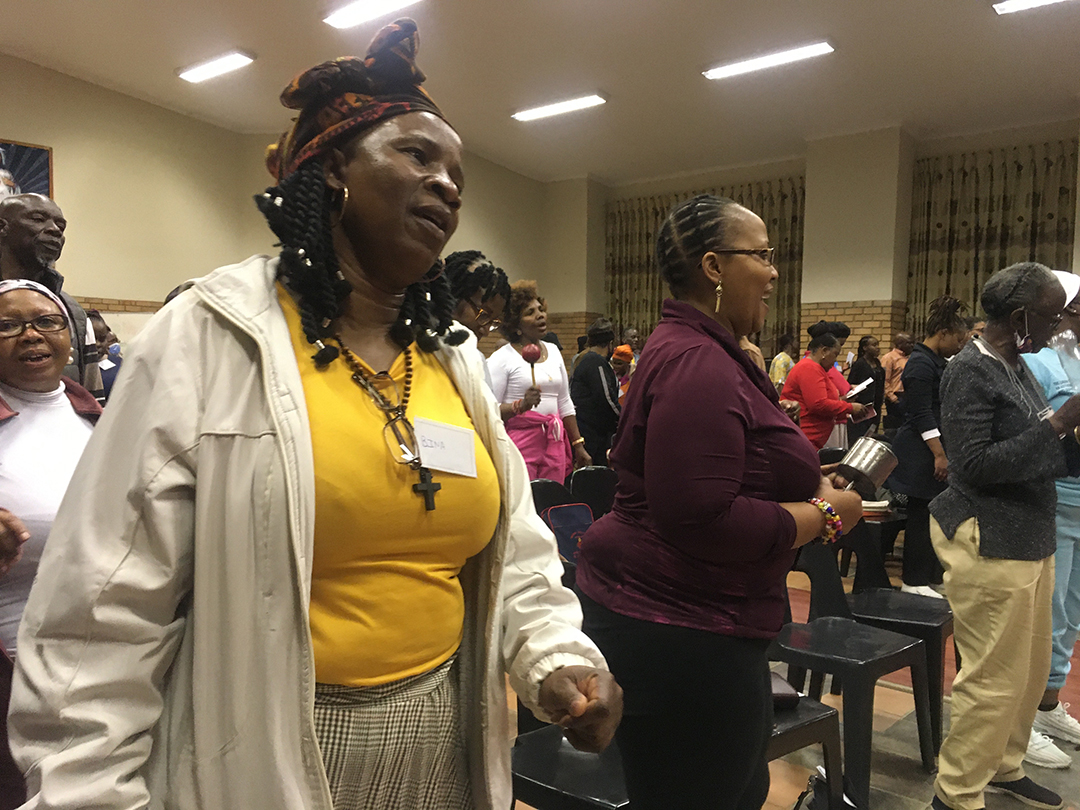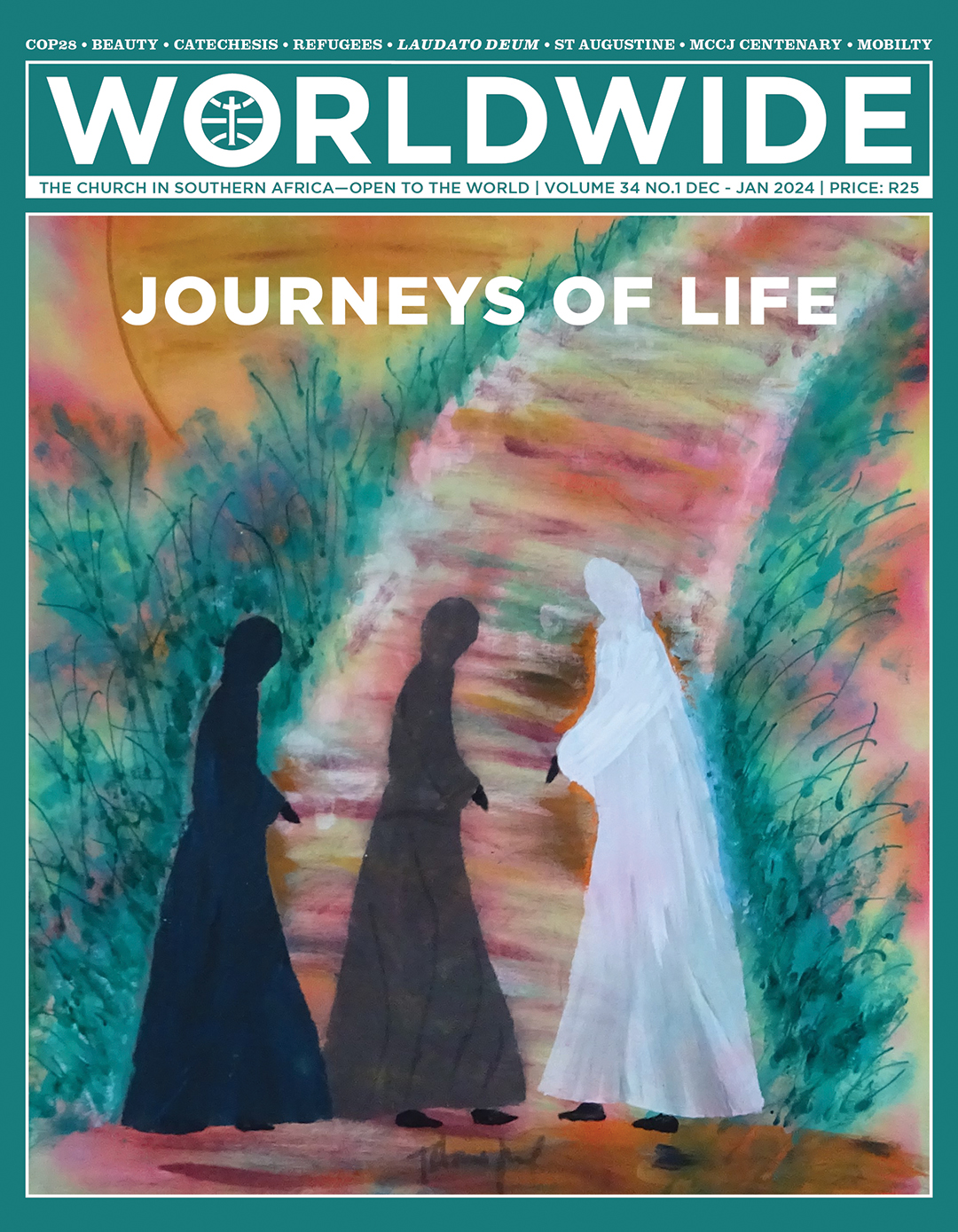
JOURNEYS OF LIFE
The painting on the front cover entitled “The disciples of Emmaus” reflects our journey of hope. Jesus not only walks with us, but gives us the wisdom to perform our ministries and opens our eyes to see Him in the people that we are serving.
SPECIAL REPORT • A REFUGEE’S JOURNEY
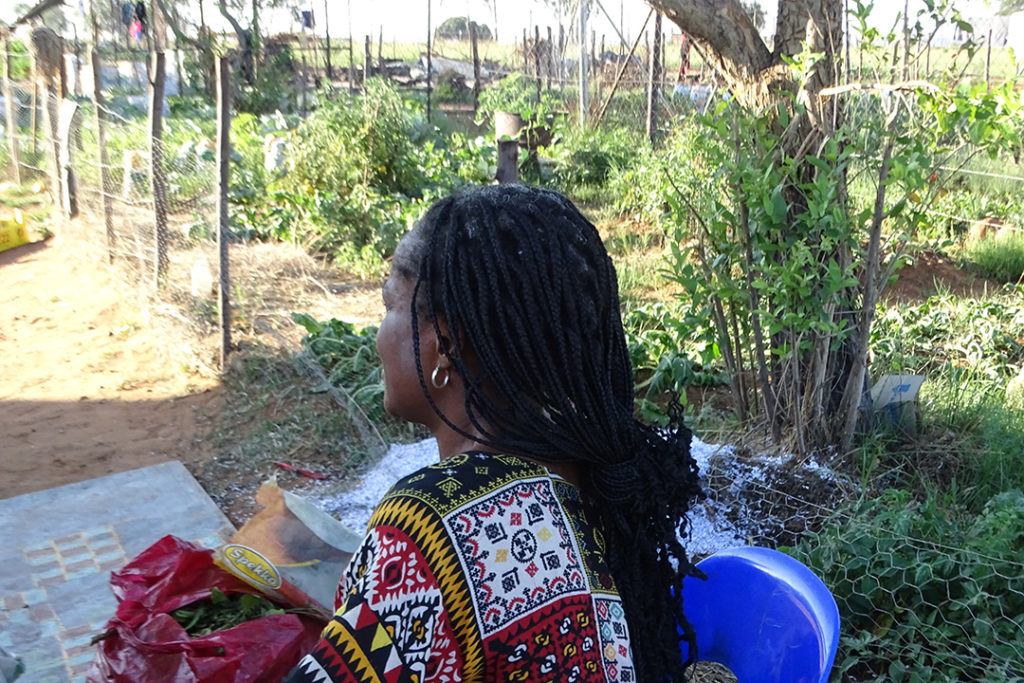
FLEEING FROM VIOLENCE, SEARCHING FOR A NEW HOME
South Africa has a long tradition of hospitality, hosting a large population from different parts of the continent and the rest of the world. Integration of foreigners into the community through inter-marriage have always been a common feature. Non-South Africans occupy positions of relevance in the Church and society at large. However, we cannot deny the regrettable occurrence of xenophobia and violence—especially in contexts of poverty and competition for limited resources—which we Christians reject, as we uphold values of respect for the dignity of every person.
BY Fr Rafael Armada MCCJ | reporting from Bronkhorstspruit, Gauteng PROVINCE
ON 21ST April 2023, a group of 90 refugees from DRC Congo were evicted from the offices of UN High Commissioner for Refugees (UNHCR) at Waterkloof, Pretoria. They had been camping outside the building for nearly a year, requesting protection from UNHCR. The Court eviction order gave them the options of being moved to Lindela Repatriation Centre or being arrested. They objected to both, and were moved to a farm in the proximity of Bronkhorstspruit, Gauteng Province. One of them shares her life’s journey.
My name is Nicole Wouandy (pseudonym). I was born in 1981, in Goma, North Kivu Province, DRC. We were a family of 12 siblings: nine girls and three boys. My father worked at Lipton Company. Suddenly, violence erupted. We had to escape to the forest when the alarm sirens rang. We would return home only when our father would indicate to us that the situation was calm. This happened frequently.
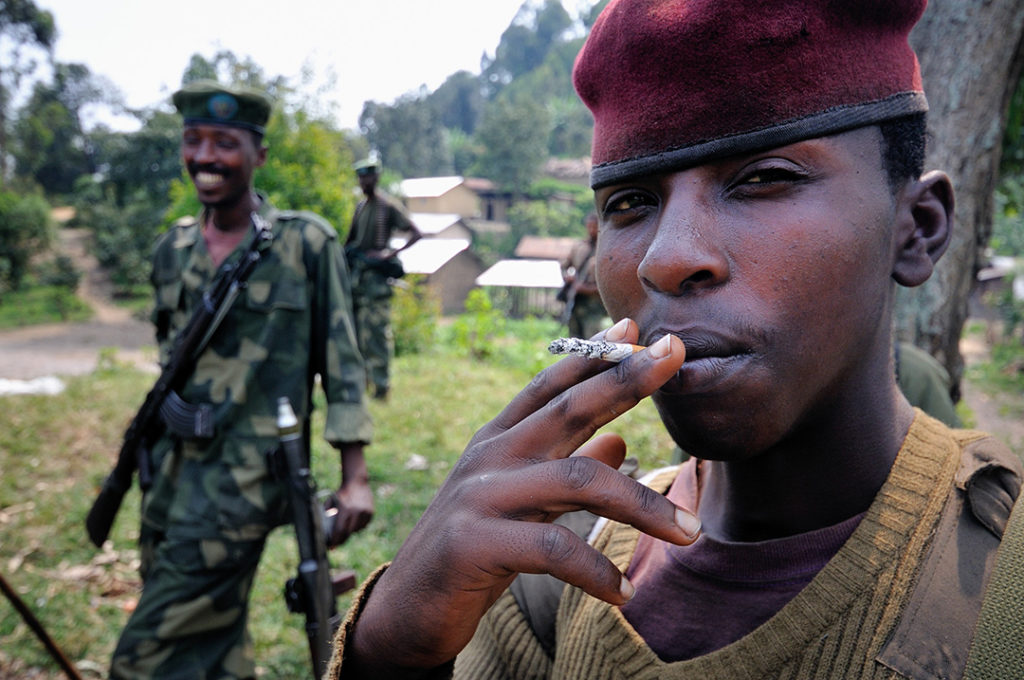
Fleeing from violence
In 1995 everything collapsed; we dispersed and couldn’t return home. Every member of the family went his or her way. I went with friends, neighbours…I found myself in Lubero, far from Goma. As we fled, some died on the way, did not make it; or fell sick. Young kids got lost. You would find a two-year-old toddler wandering alone.
I got a lift to the city of Beni (north east of the country) where I stayed for a while. We would move to another town if we were rejected. When the rebels came, they took the men, even little boys, to the forest and trained them to be soldiers. As these came back to their own villages, they would rape their family members and neighbours. Commanders would order a father to sleep with his daughter. They would say: “Now, you are a man; if you can kill a family member, now you can kill anyone”.
Nursing
In Beni, a family welcomed me. Dr Kananda, was a medical doctor. He found me sleeping outside his home and invited me in to help his wife with chores. He taught me to be a nurse, and took me to his hospital. I started treating patients, rebels from countries like Burundi, Uganda…. Dr Kananda left to America and I remained in the hospital. I did everything, except operations, until some people assaulted and raped me. I gave birth to my first daughter. A man approached me saying: “I must marry you”. In our custom, when a woman remains alone and pregnant, she is rejected and considered a disgrace. He married me and became the father of my second child. Then the rebels came. They took him away. He disappeared.
Suddenly, violence erupted. We had to escape to the forest when the alarm sirens rang.
Things worsened at the hospital. The rebels brought wounded people and threatened me. We ran away to a town, Oicha, where there was tribal fighting. We were eight families-not belonging to the two fighting groups. We were the first to be targeted. We stayed with the Comboni Sisters for a while, but eventually had to leave. From Kivu Province, we went a very long way to Kisangani, Likasi, and Lubumbashi, in the south of the country. In 2009, we reached Kasumbalesa, bordering Zambia. There I sold fish and Kwanga (pap).
A truck driver approached me, saying: “You are a courageous woman. I can help you”. He took my two kids and me to South Africa. We arrived in three days, all the way inside the truck, so we did not see anything on our way. We were hungry. Fortunately, the driver did not harm us.
New life in South Africa
I did not know any English. In Park station, Johannesburg, I met a cleaner who gave me five Bob (50 cents), my first South African money. She took us to Congolese nationals selling goods outside the station. They spoke Lingala, I spoke Swahili, so they found someone speaking my language.
They accompanied us to the Church of the Branhamist (Orange Grove, Johannesburg). The Pastor, Daniel, was not around when we arrived. We slept in the church’s courtyard for three days until he arrived. Fortunately, he could speak French. He told me: “From today onwards you are the take carer of this place”. A few days later, I went to Home Affairs where I met my future husband. He helped me to fill forms and shared his contact details. I was granted a three-month permit to stay.
I had a saloon, a restaurant. South Africa was an enjoyable paradise and visited places like Bela-Bela, Monte Casino …
The Pastor sold the church and he gave me R2 000. I called the man whom I had met at Home Affairs; he invited us to stay at his place. I sold goods in the street and my husband worked as a security guard in a tavern. We were very close. He bought his first car, repaired it, bought another… until we had 15 cars. I had a saloon, a restaurant. South Africa was an enjoyable paradise and visited places like Bela-Bela, Monte Casino … My kids were spoilt. I did not want them to know about suffering and people sleeping with empty stomachs. I taught them to praise and thank God.
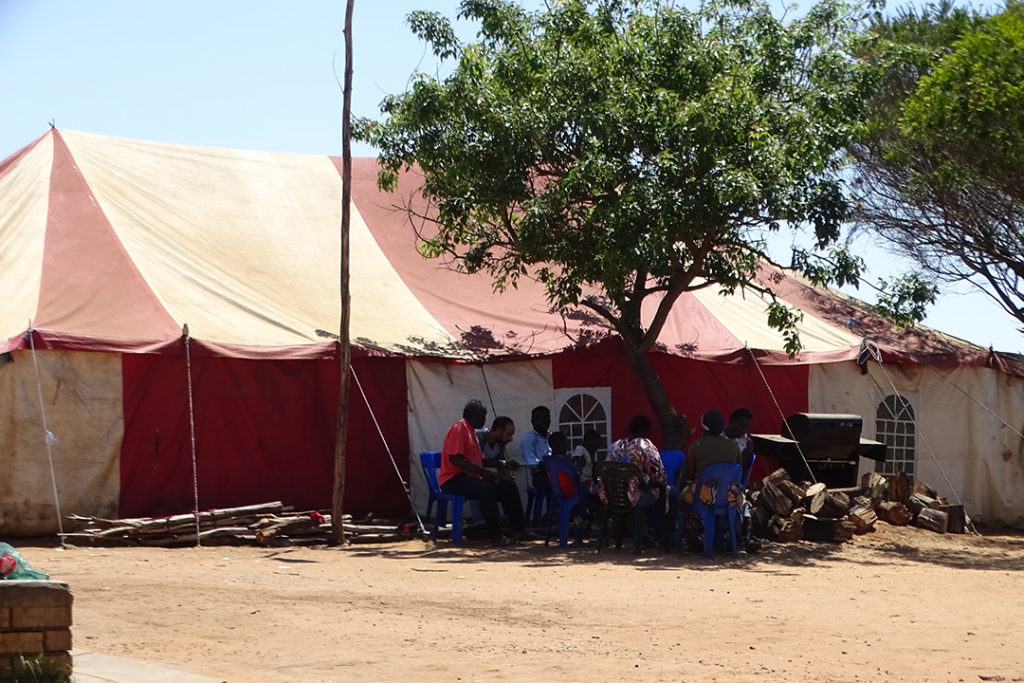
Xenophobia erupts
In 2010, people said: “You are progressing very nicely. If there is xenophobia, they will come for you”. Our neighbours were mocking us, though we always helped everyone. When you have suffered, you understand others’ sufferings.
In 2019, we were selling cars in a big garage, in Julies Street, JHB. Taxi men were familiar with ‘Big Man’, my husband’s nickname. I was also known in JHB taxi ranks. My husband and I did business together. He dealt with the municipality, where we had many friends, renovating abandoned houses. They gave us contacts, we would renovate homes and rent them out. These businesses gave us good money.
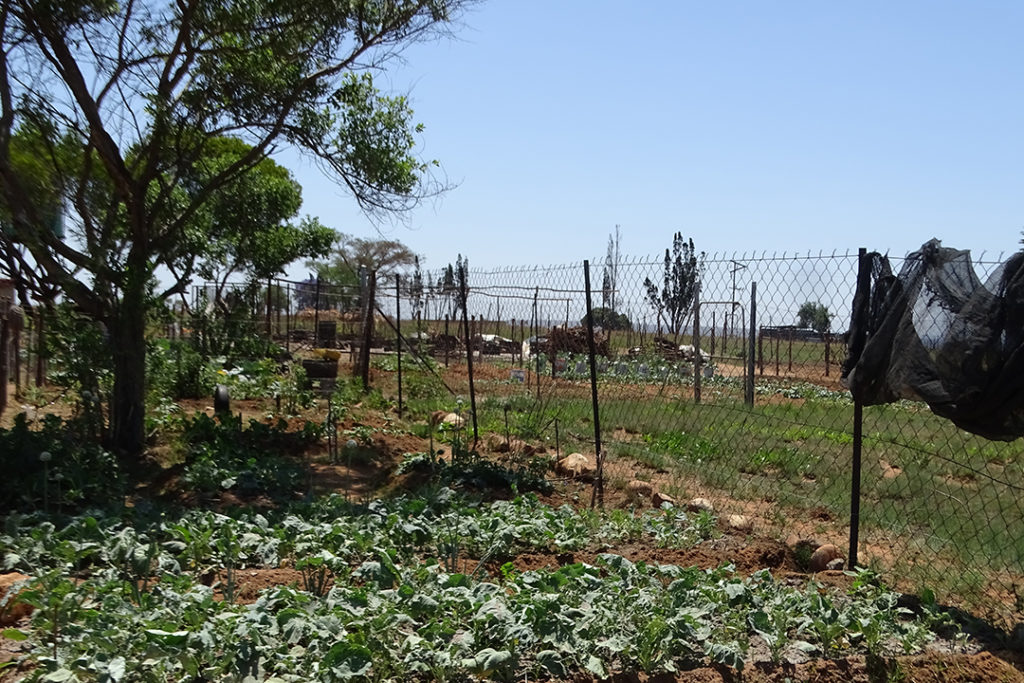
One morning in September 2019, they burnt Julie Street businesses and shops including our garage with 24 cars inside: 15 were ours, nine belonged to others. My husband was selling these; five were taxis. People staying at the hostel were shouting ‘Hamba’; they were the ones who burnt them. The taxi owners started threatening us. They were our friends before; our families ate together. They started saying: “You have a lot of money; you must pay for our taxis”. Their property was worth about a million rand. We did not have that money. We opened a case, but the police were scared and told us: “We cannot do anything. Stay away from them”. Our lawyer did not want to get involved either.
They broke down my restaurant while the police looked on. They said: “This is South African money, go back to your country”. We went to UNHCR on 9th October 2019, for protection. Many people were outside their offices. At the gate, they told us: “We do not receive people”. We remained there outside, with our family, for 45 days, until 15th November, when the police took the men to Kgosi Mampuru Prison, and the women to Lindela, allegedly, for safety reasons. I lost contact with my husband and my son.
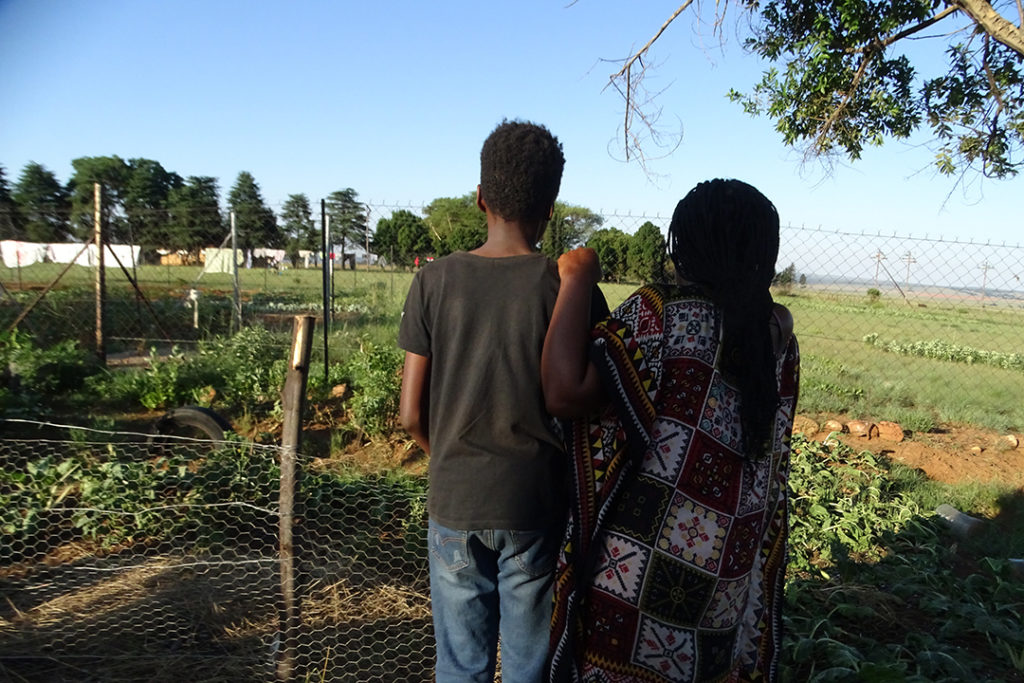
Confined
We suffered a lot at Lindela for two years- no soap, no toothpaste. My two-year- old child was hungry as the food they gave her was not enough. I had to share mine with her. As other women were talking with their husbands in Kgosi Mampuru, I realised that mine was not there. The situation made me sick (blood pressure, heart problems…). There I met a Congolese boy and asked him to inquire about my husband. After five days, the boy phoned: “Your husband will call you”. After ten days, my husband phoned and visited me at the clinic. He told me that he never entered Kgosi Mampuru, but jumped out of the police car.
I kept our savings at Lindela. My husband wanted to open a new business to pay the taxi drivers. The amount we offered, they refused. My husband and son hid from them. I gave my husband R400 000. He told me he would meet the taxi drivers. On 29th May, UNHCR personnel came to see me at Lindela. I asked for someone to accompany my husband to meet the taxi drivers. My husband went alone to meet them, taking R300 000. He phoned later: “I gave them R60 000 each, promising to give them the same amount after six months”.
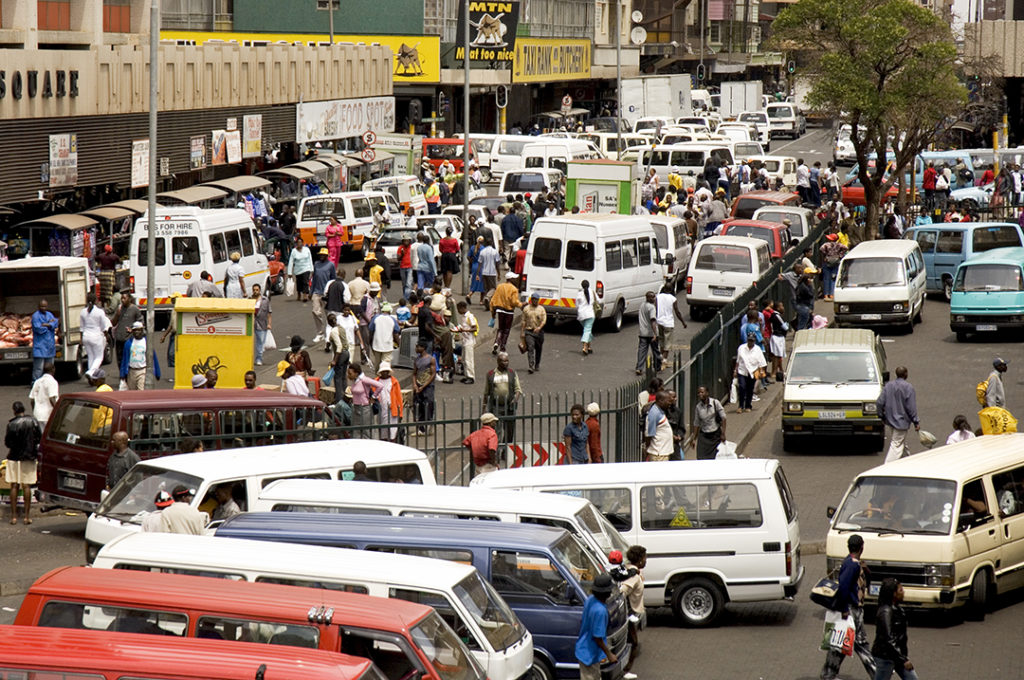
Tragic deaths
They received the money, but fought and argued. I asked my husband’s friend to meet my husband. In the morning, I phoned my husband but he did not answer. My son said he was still sleeping. He was already dead! Being in jail, I could not find out what really happened. They just sent me a picture of his coffin. They sent the body to DR Congo on 25th June. On 17th July, the taxi drivers killed my husband’s friend. They searched for my son, but luckily, he was not at home. Eventually, my son was brought to Krugersdorp Clinic. When we returned to Lindela by ambulance, they did not allow my son to enter there. My two elder daughters had to stay outside with him for a week.
Mercy
A South African lady passing by took pity on them and took them to her home from July 2021 to May 2022. Meanwhile, I remained in Lindela with my two young daughters until we were released and taken to the UNHCR offices. The lady brought my children back there and we stayed together for nearly a year, until the Court Order commanded us to vacate.
Suddenly, violence erupted. We had to escape to the forest when the alarm sirens rang.
Nicole’s story cannot end here; it needs a dignifying solution as do many other refugees, in similar circumstances. We may not have all the answers to their problems, but we do have the social and Christian responsibility to support them on their genuine dream of enjoying a new home.

